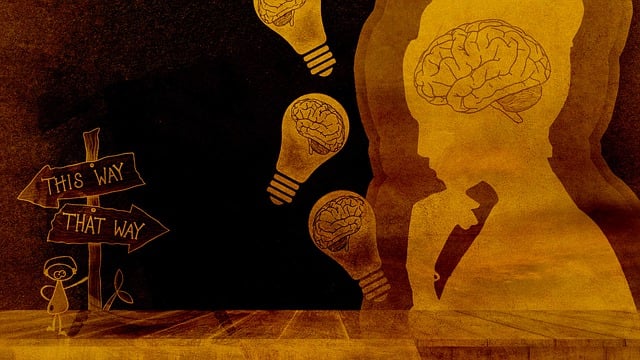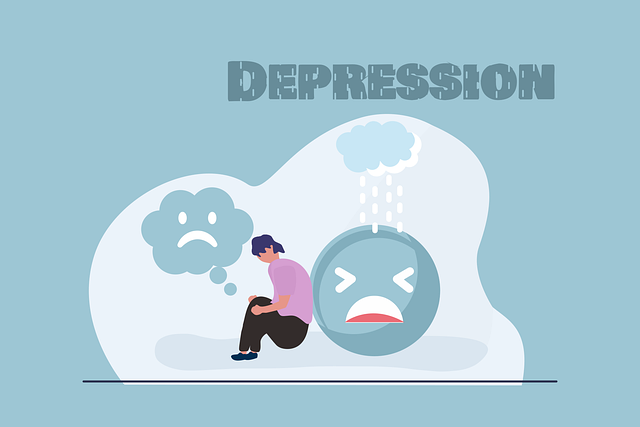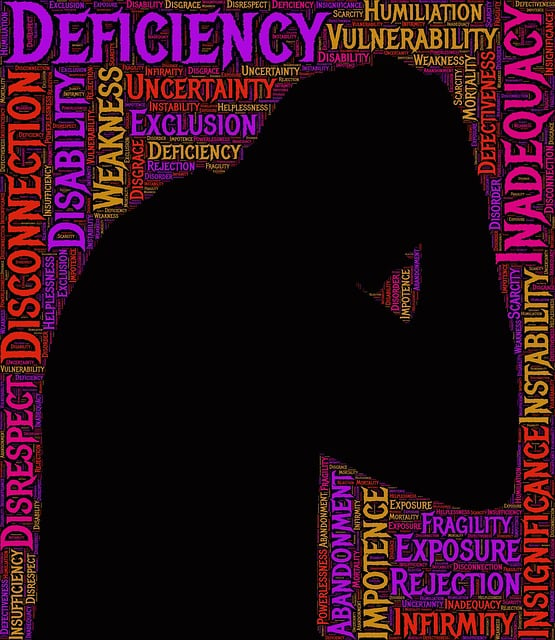Depression in young children is a growing concern, requiring early identification and prevention strategies. Cognitive Behavioral Therapy (CBT) is an effective therapy, addressing negative thought patterns and teaching kids to manage their emotions proactively. Supportive home and school environments, coupled with mental health education, foster open conversations about emotional well-being. Maintaining healthy lifestyles, including balanced nutrition, exercise, and quality sleep, combined with CBT, offers a comprehensive approach to prevention. Mindfulness practices and strong social connections further enhance resilience against depression in young individuals.
Depression among young children is a growing concern, but preventative strategies can make a significant difference. This article explores various tactics to combat this issue early on, focusing on cognitive behavioral therapy (CBT), a highly effective tool proven to support mental health in children. We delve into the identification of early signs and symptoms, providing insights for parents and educators. Additionally, we discuss creating supportive environments, adopting healthy lifestyle choices, and other effective strategies to foster resilience and prevent depression in young individuals.
- Understanding Depression in Young Children: Early Signs and Symptoms
- Cognitive Behavioral Therapy (CBT): A Powerful Tool for Prevention
- Creating a Supportive Environment at Home and School
- Healthy Lifestyle Choices: Nutrition, Exercise, and Sleep for Mental Well-being
- Additional Strategies: Mindfulness, Social Connections, and Professional Help
Understanding Depression in Young Children: Early Signs and Symptoms

Depression among young children is a growing concern, and early identification is key to preventing its onset. While it might be challenging to recognize, there are distinct signs and symptoms that can indicate a child is struggling with their mental health. Often subtle, these may include persistent sadness, changes in appetite or sleep patterns, withdrawal from social activities, difficulty concentrating, and feelings of worthlessness. It’s crucial for parents, caregivers, and educators to be attuned to these early cues as they can significantly impact a child’s long-term mental wellness.
One effective approach to addressing these issues is through therapy, particularly Cognitive Behavioral Therapy (CBT). CBT is designed to help young individuals identify negative thought patterns and replace them with healthier coping mechanisms. By teaching children skills to manage their emotions and navigate challenging situations, CBT empowers them to improve their overall mental health and build resilience. Additionally, Mental Health Education Programs focused on raising awareness and fostering empathy within schools can create supportive environments, encouraging open conversations about emotional well-being.
Cognitive Behavioral Therapy (CBT): A Powerful Tool for Prevention

Cognitive Behavioral Therapy (CBT) is a powerful tool in the arsenal of depression prevention strategies, especially for young children. This form of therapy focuses on identifying and changing negative thought patterns and behaviors that can contribute to low mood and emotional distress. By teaching children coping skills development through CBT, they gain valuable tools to manage their mental health proactively.
The therapy aids in burnout prevention by equipping them with techniques to navigate challenging situations and maintain a positive outlook. Through structured sessions, children learn to recognize unhelpful cognitive distortions and replace them with more realistic, balanced thoughts. This process empowers them to develop effective mood management strategies, fostering resilience and enhancing their overall well-being.
Creating a Supportive Environment at Home and School

Creating a supportive environment at home and school is pivotal in depression prevention strategies, especially for young children. In the realm of therapy for young children, Cognitive Behavioral Therapy (CBT) has proven effective in fostering resilience and coping mechanisms. CBT helps kids identify negative thought patterns and replaces them with positive, realistic ones, enhancing their ability to manage emotions. A nurturing atmosphere further facilitates this process by encouraging open communication about feelings, reducing stigma associated with mental health issues.
Empathy building strategies among peers and educators play a significant role in risk management planning for mental health professionals. Burnout prevention techniques such as regular breaks, self-care practices, and collaborative support networks are essential components of a comprehensive approach. By integrating these initiatives into educational settings, we can create a harmonious environment that prioritizes emotional well-being, ultimately contributing to the early detection and intervention of depression.
Healthy Lifestyle Choices: Nutrition, Exercise, and Sleep for Mental Well-being

Maintaining a healthy lifestyle is an essential aspect of preventing depression and promoting mental well-being. Nutrition plays a significant role; incorporating balanced meals with whole foods, rich in vitamins and minerals, can positively impact mood and energy levels. Staying hydrated and limiting processed sugars are also crucial for overall health. Regular exercise is another powerful tool; engaging in physical activities like walking, swimming, or yoga releases endorphins, which boost happiness and reduce stress. Aiming for 30 minutes of movement daily can make a significant difference.
Quality sleep is often overlooked but is vital for emotional regulation. Most adults require 7-9 hours of uninterrupted rest to function optimally. Establishing a consistent sleep routine, creating a relaxing bedtime environment, and limiting screen time before bed can improve sleep quality. Combining these healthy habits with evidence-based therapy, such as Cognitive Behavioral Therapy (CBT), offers a comprehensive approach to depression prevention, especially for young children where early intervention through community outreach programs can significantly enhance self-esteem and mental wellness.
Additional Strategies: Mindfulness, Social Connections, and Professional Help

Mindfulness practices have emerged as a powerful tool in the prevention of depression, especially for younger individuals. Encouraging children to be present in the moment and cultivate awareness of their thoughts and feelings can significantly reduce risk factors associated with depressive disorders. Simple mindfulness exercises like deep breathing, meditation, or even mindful walking can enhance emotional regulation skills and promote mental resilience.
Social connections play a pivotal role in maintaining good mental health. Fostering strong relationships and encouraging open communication can provide a supportive network during challenging times. In cases where a child is experiencing symptoms of depression, involving family members, friends, or peers in a crisis intervention guidance program can be beneficial. These programs often include empathy-building strategies that teach individuals how to recognize and support one another, leading to improved emotional well-being. Additionally, seeking professional help through cognitive behavioral therapy (CBT) has proven effective in treating depression and preventing recurrence by identifying and changing negative thought patterns.
In preventing depression in young children, a multifaceted approach is key. By recognizing early signs and symptoms, incorporating evidence-based therapies like cognitive behavioral therapy (CBT), fostering supportive environments at home and school, encouraging healthy lifestyle choices, and exploring additional strategies such as mindfulness and building social connections, we can significantly enhance mental well-being for this vulnerable population. Access to professional help remains crucial in managing and mitigating depression, ensuring children have the tools to thrive.














